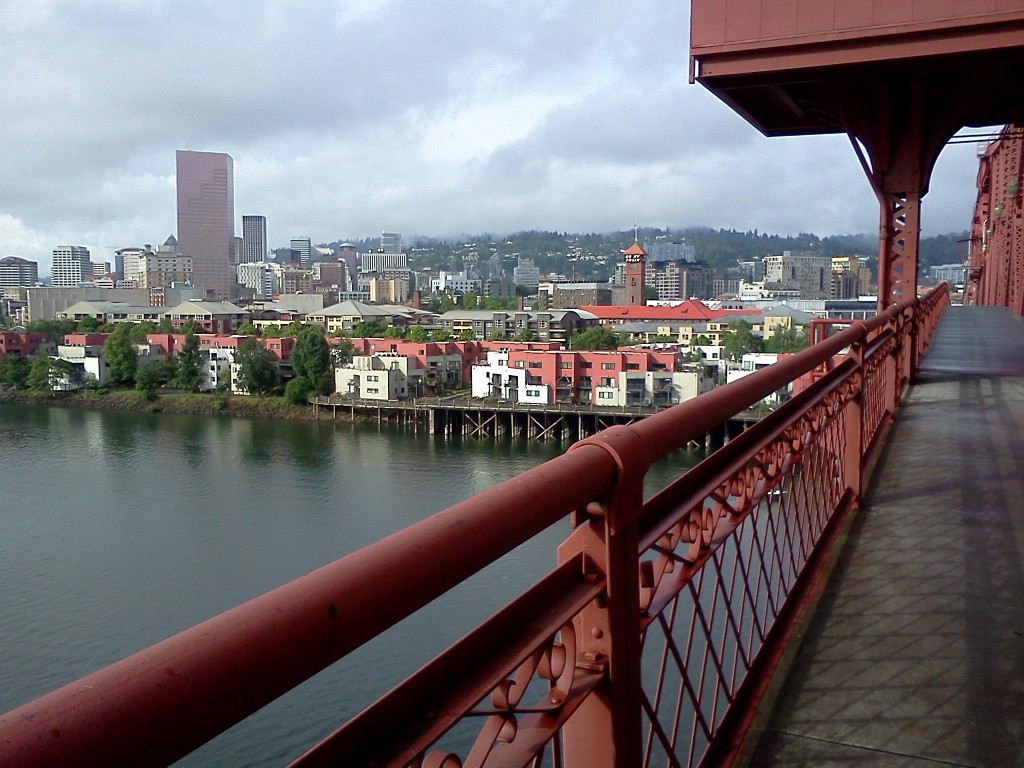Portland Boil Alert – Noticing what Works
I just got a phone call from a woman I don’t know. It was my second time to hear her voice. The first time was yesterday afternoon when she called everyone in Portland, Oregon to tell us we needed to boil our drinking water. E Coli had been found in the drinking supply. We needed to be careful and via ‘reverse 911’ the officials of our city were letting us know.
So, here at home, we pulled out our biggest pots and boiled water. We drank and cooked with it until just now, pretty much exactly 24 hours later, when the same woman phoned to say the necessity for boiling was past. Good news.
Good news for households and really good news for restaurants that otherwise would have had to remain closed here on the threshold of Memorial Day — a weekend doubling this year as the first for Portland’s annual Rose Festival. The city is sighing a happy sigh.
As if in anticipation, we talked about these sorts of times a few days earlier in one of the graduate courses I’m teaching this summer. The course is focused on working with groups — specifically, with adults in groups. In class this week, we got into a discussion about communities – the groups that compose them, the way communities are groups in and of themselves. That focus got me into stories of the two EX:Change trips early in 2009 and again early in 2012. They were the road trips around the country that supported the collection and then sharing of the 100 Voices.
By the middle of the second trip, around the first of March, 2012, I was in Wisconsin. I’d been driving for a little over a month and, during that drive had begun noticing something reassuring about communities — about adults in groups — that it seems too easy to overlook. That something is that loads of stuff in our neighborhoods, communities and country works. Very many things are working all the time, and they’re working because we’re cooperating with each other.
There are countless examples. The agreements we keep to stop at stop lights and to drive on the right side of the road. The fact of the roads themselves, of the food stocked in grocery stores, the electricity when we flip a switch, the connection that pops into place when we dial a phone number.
In Wisconsin that March, I watched out the window early one morning after an enormous Midwestern snowstorm. Children were walking to school — some in groups, some with their parents. The roads had been plowed by city workers, the sidewalks cleared by the residents of the homes and businesses. School was open as ever, and the children were on their way.
“There’s a lot that works around here,” I thought. And I realized that’s the way it had been all around the country — that’s what I’d been seeing. It’s what had supported every mile of my trip, every gathering in churches and libraries and bookstores and living rooms. It occurred to me that paying attention to what’s working might be a great antidote to complacency, contention and distrust around all the things that need to be fixed. And it would be easy to do because it’s happening all the time. Stuff is working.
Because so much in our communities works, we have space, time, and attention for addressing what isn’t going so well. Because things work, we have a stage for the distress and argument and, sometimes even for creativity and solutions.
Portland just had a vote on whether or not to sell water management to a private corporation. For now, water is still under municipal oversight, but leading up to the vote last Tuesday, water was the subject of plenty of discussion – lots of it heated. Then came yesterday and the uncomfortable presence of E Coli.
The point: stuff worked. Portlanders cast their votes in the election May 20 because stuff worked. Yesterday, we all learned of the need to boil water for a bit, and then we learned the danger was passed. Loads of things worked to set in motion the contagion of detection, analysis, communication and activation of measures to ensure community safety.
So, this is the way it goes. Problems arise against a backdrop of functionality. It can’t really be any other way.
That being a given, I guess I’m inviting us into a break from our “ain’t it awful” habits – a satisfaction break – a happy break for noticing what’s working. We’ll get back to the problems. And we may even be better at getting them solved.
 Clare Consultation, LLC
Clare Consultation, LLC
Half full or half empty? We are way happier and less likely to despair if choose to be half full kind of people. The wisdom of grandparents comes through once again. ( like the water pun?)